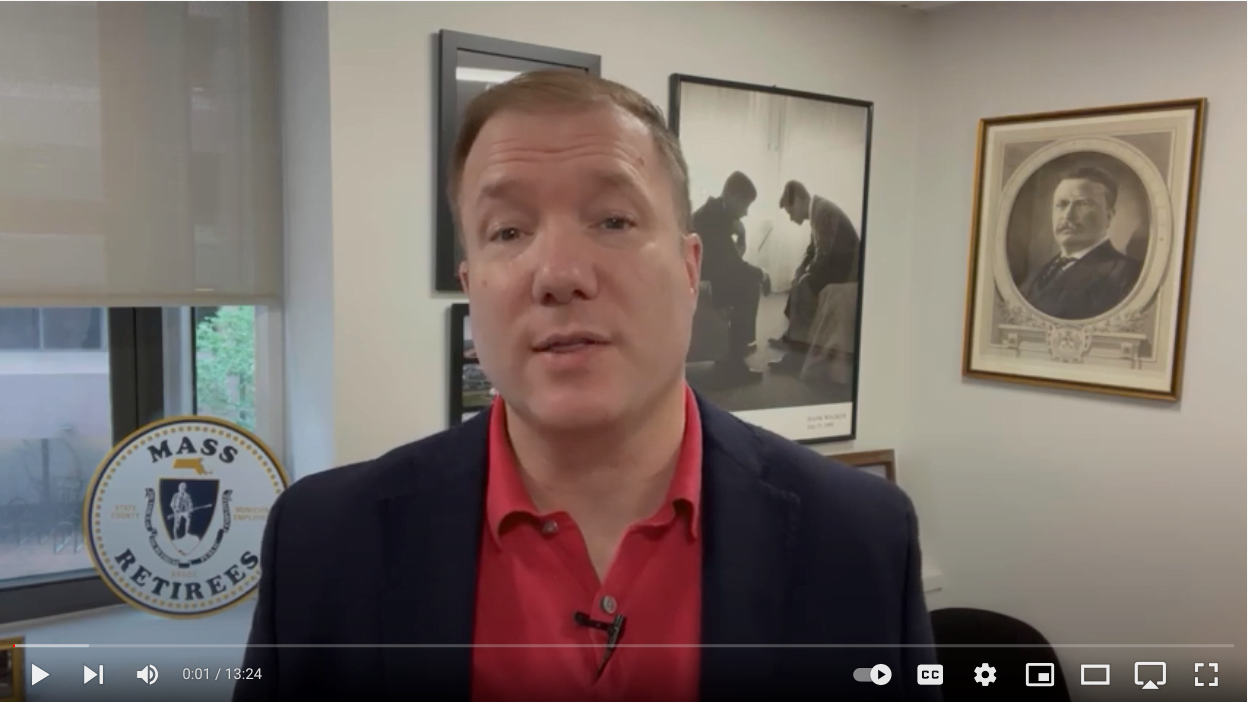Awaits Approval By Governor Baker
Our efforts to pass a 5% COLA for FY23 took a major step forward this week when the legislature unanimously approved the measure as part of the annual the State Budget. The budget was sent to Governor Charlie Baker Monday afternoon, beginning the 10-day review period within which the governor must act on the legislation.
While the governor’s position on the 5% COLA and local option provision remains unknown, Mass Retirees has worked closely with Charlie Baker on COLA policy in the past. Back in 1997, then Secretary of Administration and Finance Charlie Baker supported our legislative proposal that returned responsibility of the COLA to local retirement boards, while increasing the minimum base from $9,000 to $12,000. On Baker’s advice, Governor Bill Weld signed COLA reform into law as Chapter 17, Acts of 1997.
Watch today’s video report here!
Proposed by Mass Retirees and unanimously approved as amendment to the House budget in April, the COLA was included within the conference committee report released on Sunday evening, before receiving approved by the full House and Senate on Monday. Our Association, along with the Retired Educators Association of Massachusetts, the Professional Fire Fighters, and the Mass. Teachers Association – among others – have called upon the governor to support the two COLA provisions now before him.
The budget contains two Outside Sections relative to the FY23 COLA. Section 134 grants permission for the 102 local retirement boards to pay a COLA from 3-5% at any time during FY23 (July 1, 2022 through June 30, 2023). State retirement law restricts the local COLA not to exceed 3%, thus requiring a special act that will supersede the statute for this fiscal year only.
Section 154 established a 5% COLA for State and Teacher retirees in FY23. By statute, the legislature sets and approves the State & Teacher COLA as part of the annual State Budget. If approved by the governor, the COLA increase will appear in the August pension checks and be retroactive to July 1. This would mark the largest increase since 1992!
As we have previously reported, the 5% State and Teacher COLA will be applied to a $13,000 base for a maximum benefit increase of $650 in FY23. However, as is the case with all COLAs in Massachusetts the increase becomes a permanent part of the retiree and surviving spouse’s pension benefit. This cumulative effect is somewhat unique to Massachusetts pension law. In most other states the COLA, when approved, is treated as a bonus payment and is not a permanent increase.
That said, our immediate focus heading into this fall is to include a State and Teacher COLA base increase within the revaluation of the Commonwealth’s pension funding schedule. FY23 marks the final year of the current three-year appropriation schedule. The new schedule, which takes effect July 1, 2023, will capture pension fund investment earnings for 2019, 2020, and 2021.
Due to the high costs involved with raising the COLA base, it is important to time the proposal to coincide with the revaluation process that begins this fall.
This same process takes place on a staggered basis across the 102 local retirement systems, once every two years instead of the 3 year cycle used by the Commonwealth. To date, 28 local retirement systems have increased the local COLA base in 2022 – the most activity since 2010 when as a result of Mass Retirees sponsored legislation, local systems were first allowed to raise the COLA base.
Locally, the COLA base ranges from a minimum of $12,000 up to as high as $18,000. I should point out that while the law does not limit the COLA base, to date no retirement system has opted to go beyond $18,000. Please look to the upcoming September edition of The Voice for a full COLA base list.
When the $12,000 base was established in 1997, the goal was to maintain a base that was consistent with the average Social Security payment paid in Massachusetts. Over the past 25 years, the average Social Security benefit has grown to nearly $20,000.
A question that we receive, particularly from new retirees, is why have a COLA base at all? Why is the COLA not applied to a retiree’s full pension. The simple answer is that our public pension system was not designed to pay a full COLA. Such a benefit was never intended, so the financing of the pension systems is not designed for it. A change of that magnitude would require billions of dollars in new funding from both active employees and the taxpayers. Such a change in the law would also be local option, needing to be adopted by town meeting and local city councils – likely an impossible task.
Therefore, we must place an emphasis on making incremental increases in the base – something we would like to see occur on a more regular basis.
In closing, I want to thank the legislative leadership for opting to include the 5% COLA within the conference committee report. I also want to again thank the co-Chairman of the Joint Committee on Public Service, Rep. Ken Gordon and State Senator Mike Brady, for taking the lead on this issue within their respective branches.
And a very special thank you must go out to House Ways and Means Chairman Aaron Michlewitz, who made the COLA increase a person priority from the start of this year’s budget process.
Members can look to www.MassRetirees.com, our Facebook page, and recorded hotline for any breaking COLA news over the coming week.
Watch the video report by clicking the play button below.
By: Shawn Duhamel, Chief Executive Officer
Mass Retirees Association



